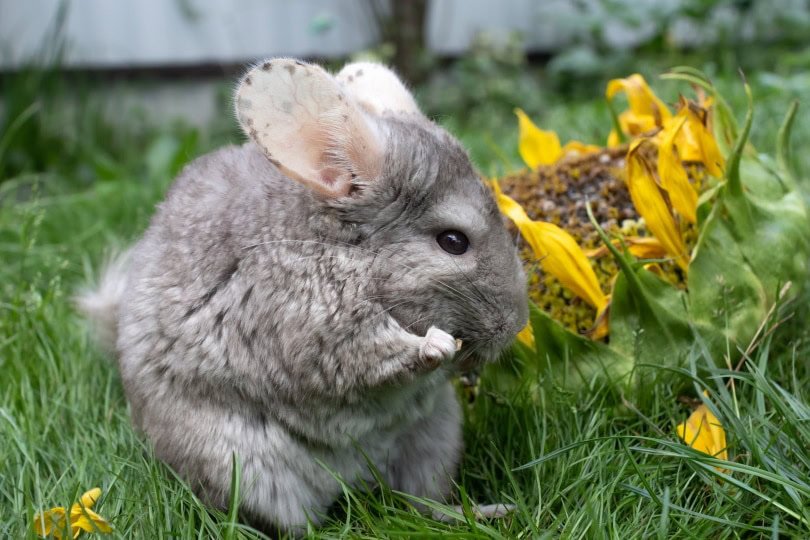VET APPROVED

The information is current and up-to-date in accordance with the latest veterinarian research.
Learn more »The 4th of July can be a notoriously difficult time for some dogs. While it can be great fun for people, many dogs find the time frightening. In some cases, it can even be dangerous for dogs, getting hurt or lost when frightened by fireworks. Plus, you have to consider the potentially dangerous human food leftovers and summer heat. All these things together can lead to a stressful and dangerous day for your canine.
Luckily, there is a lot you can do to minimize these risks for your pet. Preparing is half the battle, so be sure you’ve stocked up on these safety tips before the fun begins.

The 11 Vet-Reviewed Safety Tips for Dogs on the 4th of July
1. Get Identification Tags
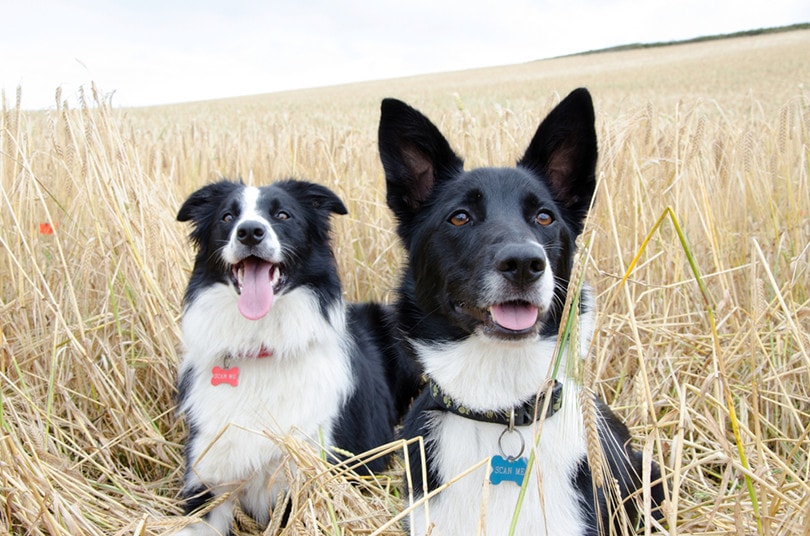
Pets are more likely to get lost on the 4th of July due to their panic surrounding the fireworks. Therefore, we recommend getting identification tags if you don’t have them already. Be sure they are updated and on your pet a few days before the fireworks begin.
2. Consider Microchipping
Getting your dog microchipped is affordable and straightforward, and a mandatory legal requirement in many countries and states, as well as a necessity for pet travel. However, you need a vet appointment, so you must arrange this in advance. We highly recommend microchipping your pet, regardless of the 4th of July, as this will make your reunion so much easier if they ever get lost. While your pet can lose an ID tag alongside their collar, a microchip is a permanent means of identification, and although malfunction is possible, as with any device, it’s not very common.
If your pet is microchipped, be sure your information in the registry is updated. It doesn’t matter if your pet is microchipped if they can’t be located.
3. Consult Your Vet About Anxieties
If your dog has been historically anxious at this time, you may want to speak to your vet. Many veterinary products on the market can potentially decrease your dog’s anxiety. However, some of these work better than others and may need to be initiated ahead of the anticipated stressful event. Some pets with severe anxiety may do best on prescription medication during this time. Of course, you’ll need your vet to take care of this prescription for you.
4. Ensure Your Home and Yard Is Secure
Most pets that get lost aren’t trying to escape home. However, they are trying to escape the scary fireworks. Therefore, now is the time to ensure your home and yard are secure. If you expect your pet to react badly, get them somewhere secure before sunset and keep them there for a decent portion of the night.
This often means keeping your dog indoors and being cautious about opening and closing outside doors, and even windows, in order to also minimize noise. If you’re having company over, consider keeping your pet in an internal room. Turn the TV on or put some music on to reduce the outside noise, and keep the shutters lowered or close the curtains for dogs who are scared of flashes and firework lights.
5. Keep Dangerous Items Away
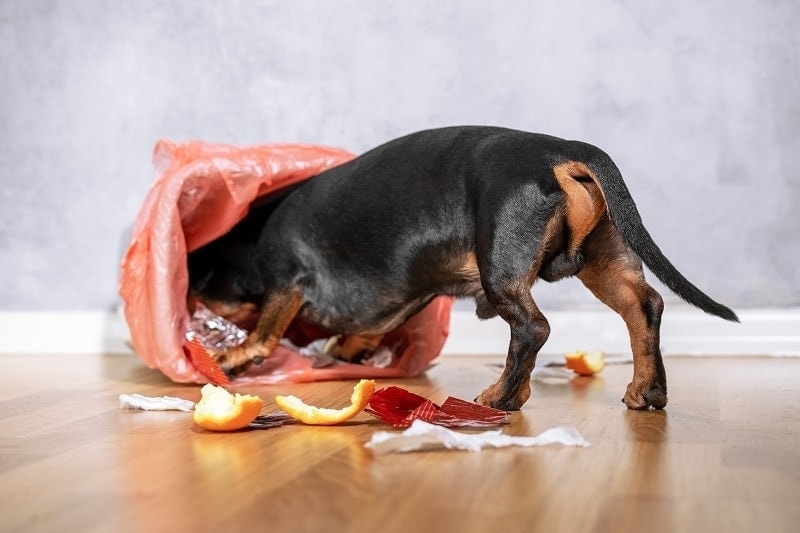
Even if your pet isn’t scared by the fireworks, there are other dangers. During the 4th of July celebrations, your dog can get exposed to glow sticks, fireworks, charcoal, and sparklers. Some dogs may try to eat or play with these items. Obviously, this can be dangerous. Therefore, be sure these items are kept out of your dog’s reach.
6. Watch Your Grill
When you’re cooking meat, you should be extra cautious regarding your dog. Most canines are attracted to the smell of meat, which may bring them to your grill. In some cases, they may even attempt to lick it, which can lead to burns of the tongue and mouth, or they may try to steal the food. Therefore, you should preferably keep your grill somewhere your dog can’t access it.
Furthermore, dogs can also try to jump up on the grill in an attempt to get to the meat, leading to burnt paws.
7. Avoid Table Scraps
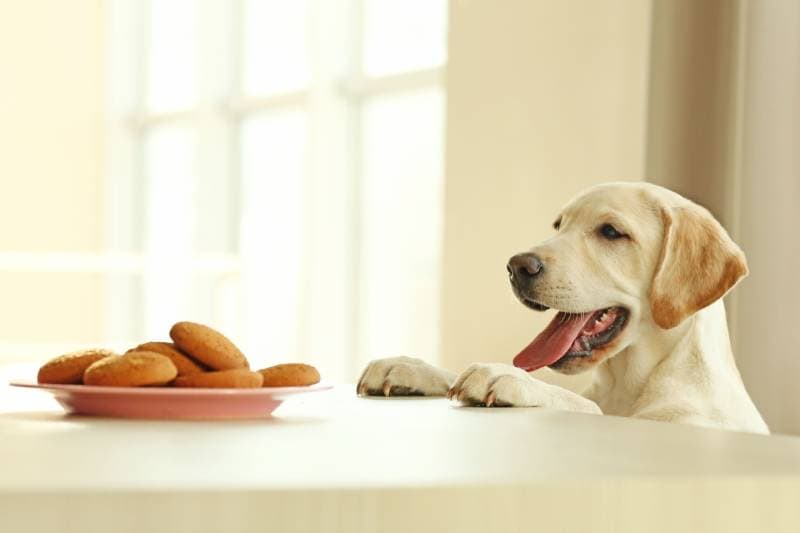
Many holiday foods can be dangerous to pets. For instance, onions and garlic are toxic to dogs. Therefore, you should avoid giving them any food with these ingredients. Of course, smaller dogs will be more sensitive to these ingredients than larger dogs but that doesn’t mean that you can feed onion-laced burgers to your larger dog. Even non-toxic food ingredients, particularly fatty ones and foods your dog is not supposed to have, may lead to a stomach upset in some dogs or predispose them to pancreatitis.
Grapes, chocolate, and other common foods are also toxic. It is much easier to avoid all table scraps than memorize a list of dangerous foods. However, if you’re set on giving your dog human food, be sure to double-check that it isn’t toxic, and be aware that this is completely unnecessary and may be harmful to your pooch. Instead, get them their own treats or offer a small amount of cooked meat without any spices or additives, so they can enjoy the day in a safe manner, without any health consequences.
Make sure to stress to your guests and children not to feed the dog, or even better, keep your dog in a private and safe space away from the noise and guests and the enticing smell of various foods.
If your dog has eaten something they shouldn’t have, such as any toxic food ingredients, or they have ingested any bones that may lead to a gastrointestinal blockage, consult with your vet promptly.
8. Watch for Overheating
July is often a warmer month so watch your canine for signs of overheating if they’re staying outside. Dogs can get overly excited during the 4th of July parties, with so many people and playtime opportunities, which may cause them to exert themselves. This can increase the likelihood of a heat stroke or similar issues.
Be sure to provide your dog with plenty of shade and water and restrict their exercise, as they may not stop on their own until it’s too late. Keep them calm and on a lead, and exercise them early in the morning or late in the afternoon and evening.
Veterinary attention is required if you notice any signs associated with heat stroke, such as heavy panting, drooling, difficulties breathing, staggering, collapsing, or other.
9. Check for Firework Debris
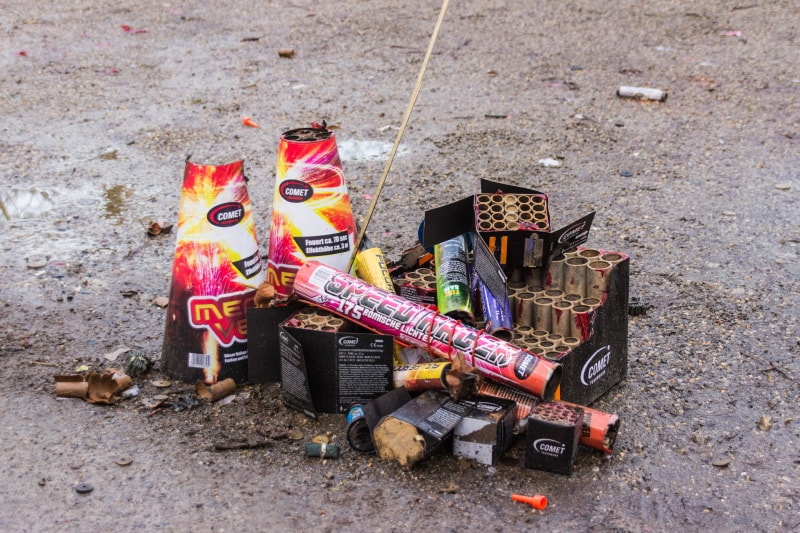
After the celebration, check your yard for firework debris before letting your dog outside. This debris can travel far, and many are potentially dangerous if ingested. Therefore, you’ll need to clean up your yard before letting your curious dog explore.
Plus, not only will this step protect your dog, but it protects wildlife, too.
10. Ensure Your Pet’s Needs Are Met
We recommend meeting all of your pet’s needs before the celebrations begin. We don’t recommend trying to take your dog on an evening walk while your neighbors are shooting off fireworks. You may also want to feed your pet earlier than usual, as the fireworks may make them too anxious to eat.
If you’re having a party, be sure you’ve set aside enough time to take care of your pet and that you and your family members find plenty of time to spend with them despite having guests around. Walks and mealtimes should be kept on routine as much as possible. Straying from this routine can cause stress, which is the last thing you want to do on an already stressful day. However, when sticking to a routine would leave your dog with unmet needs, feel free to adjust.
Ensure your dog has a calm and secure place to hide if they choose to, or to sleep and rest, and check on them frequently. If you’re not there, make sure another family member is keeping them company and providing reassurance. If your dog is anxious, it’s important that they’re not left on their own at any stage. Offer them interactive toys and food puzzles, such as a Kong toy filled with foods like dog-safe and xylitol-free peanut butter or other dog treats, or give them a licky mat with a spread of wet food while supervising them. Food may help to distract them and keep them occupied during the worst of it.
11. Consider Extra Exercise
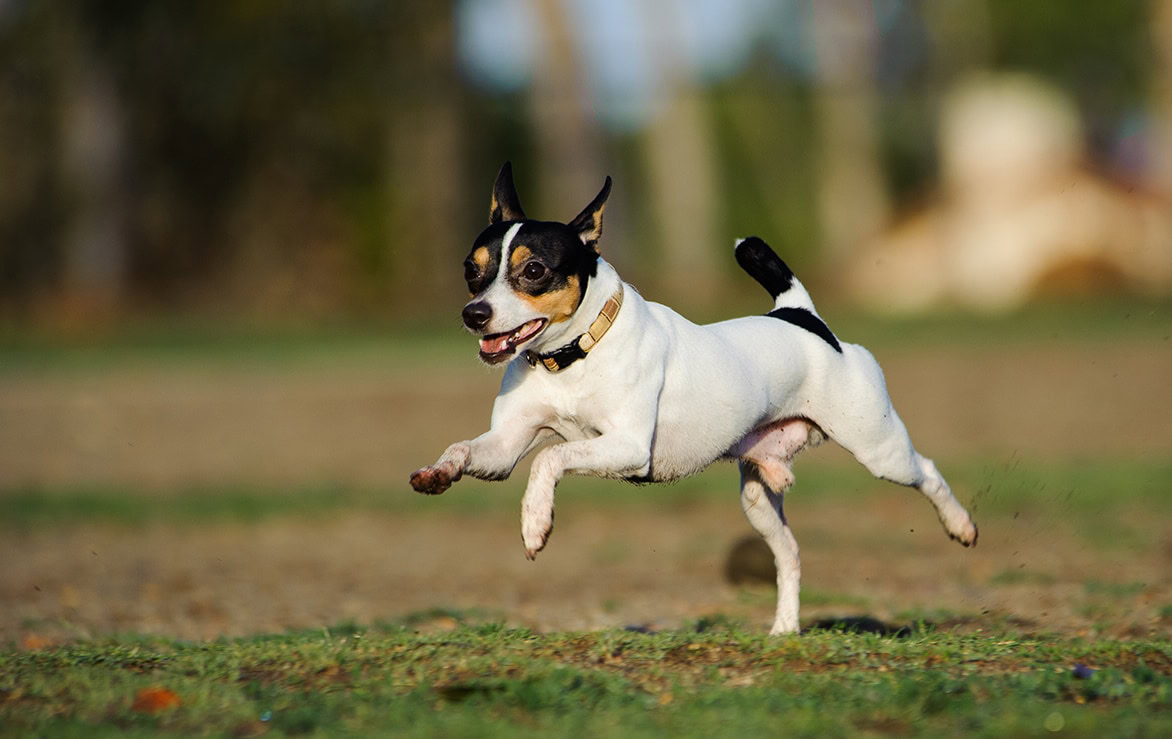
You may want to consider giving your dog an extra-long walk early in the morning on this potentially stressful day. Depending on your area, many dogs will find it too hot to exercise in the day’s peak heat and this should be avoided by all means due to the risk of heatstroke. However, getting your dog worn out first thing in the morning or the evening before stressful events can lead to less anxiety. A well-exercised dog is less likely to be high-strung, which can lead to more anxiety. You want your dog to lay down and sleep while fireworks go off—not pace around the house.

Conclusion
The 4th of July is a complicated time for dogs. Many owners know that dogs usually find fireworks stressful. However, other potentially dangerous things are also associated with the 4th of July.
Many owners also find that the usual routine is affected on this holiday. Whether you’re celebrating at home or elsewhere, your dog will probably notice something’s up.
All of the things on this list can add to the dangers surrounding this holiday. However, there are many things you can do to combat these issues. These tips should help you keep your pet safe (and maybe even a little calmer) during this celebration.
Featured Image Credit: PxHere
Contents
- The 11 Vet-Reviewed Safety Tips for Dogs on the 4th of July
- 1. Get Identification Tags
- 2. Consider Microchipping
- 3. Consult Your Vet About Anxieties
- 4. Ensure Your Home and Yard Is Secure
- 5. Keep Dangerous Items Away
- 6. Watch Your Grill
- 7. Avoid Table Scraps
- 8. Watch for Overheating
- 9. Check for Firework Debris
- 10. Ensure Your Pet’s Needs Are Met
- 11. Consider Extra Exercise
- Conclusion








